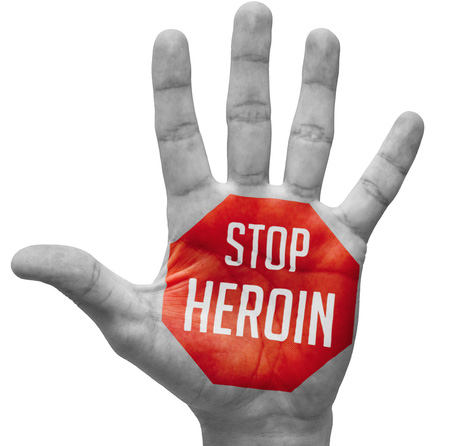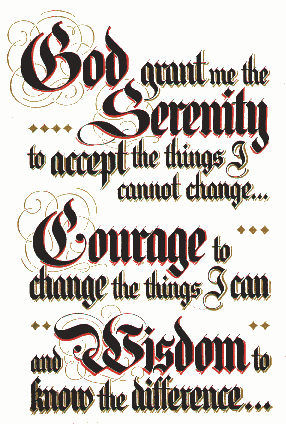
I’ve decided that enough is enough. According to this recent article in The New York Times, close to 60,000 people died in 2016 as a direct result of drug overdoses, and the number of deaths has continued to rise in 2017.
These numbers indicate the striking, undeniable truth that we as a society can no longer ignore: what we are doing to prevent people dying from drug use and abuse isn’t working.
And I can’t be silent about this deadly epidemic anymore. I’ve spent the last 21 years of my life in Recovery from addiction, and every time I read statistics about how this disease is killing people, I know one of those numbers could have been me. For almost two decades, I have devoted myself to understanding and helping with the problems that addictions create as a substance abuse counselor, a college professor on addictions, and as a consultant and volunteer for local prevention and Recovery programs. Although I never planned or expected to be a Recovery expert when I was caught in the web of my own addictions, I wholeheartedly believe it is my calling and my life’s mission.
This work is also heartbreaking, overwhelming, and tragic at times. Every patient and family member I work with has suffered loss and pain that was completely preventable, and it’s hard for me to believe that there is anyone in America who does not know someone who is either already addicted or on the road to becoming an addict. The disease of addiction does not discriminate – it impacts people across all socio-economic, cultural, gender, and geographical lines in our country. And the problems continue to grow – because we all continue to either ignore, or worse yet, to promote addictive tendencies in America.
 Part of my personal “Program of Recovery” involves incorporating acceptance of things I cannot change into my daily life. This belief is highlighted in the Serenity Prayer, which has been adopted by the Alcoholics Anonymous Program and all of the other Self Help Programs that grew out of A.A. over the last 80 years.
Part of my personal “Program of Recovery” involves incorporating acceptance of things I cannot change into my daily life. This belief is highlighted in the Serenity Prayer, which has been adopted by the Alcoholics Anonymous Program and all of the other Self Help Programs that grew out of A.A. over the last 80 years.
As an addictions counselor, or someone suffering from the effects of addiction, or as someone who defines themselves as a helper of people in general, finding the balance between what you can and cannot change is not always easy. In fact, it’s monumentally difficult. Telling anyone else what they should do, even when it is clearly, logically, and indisputably the best course of action, often falls on deaf ears and is perceived as meddling, judgmental, or controlling by the person or people you so desperately want to help.
I have seen this play out thousands of times in my professional and personal life, and it is a primary reason I have kept my mouth shut and walked away from many people and situations over the last two decades rather than trying to change them. Sometimes I think that silence works; especially when I can rationalize my actions (or lack of them) by using counselor-style/self-helpy terms like boundaries and codependency. I have even convinced myself that Jesus (who could have been a case study on codependency), warned about giving even the most awesome, enlightened advice to swine who simply refuse to hear it (I realize I’m paraphrasing here, but I like to tell myself that’s what He meant).
And this rhetoric serves as justification that I’m accepting things I cannot change. But the internal still, small voice of my Higher Power has been whispering louder and louder to me lately that this is, in the most clinical terms and spiritual of terms, usually bullshit. Because walking away and staying silent about these preventable deaths doesn’t equal acceptance. I can’t accept this anymore. I need to own the fact that my silence often comes down to a lack of courage, ignoring wisdom (my still, small voice), or to the good old habit of American apathy of which I remain too often afflicted. It’s just too easy justifying inaction because the reasons and the problems surrounding overdoses and deaths due to addiction are too big, will take far too much of my time, and/or because taking on the problems is way above my pay grade. I can stay fat, dumb, and happy in my own bubble of Recovery, so why should I trouble myself with all these sick and dying people? Someone else will take care of all this, right?
But nobody else is solving the problem, and most people aren’t even talking about it! So it’s time to leave the Recovery bubble and talk, shout, scream and carry on. I can’t pretend to accept people dying from addiction anymore, especially when many of the victims are our kids. And I know how to help. I know the solutions. I live them each day of my Recovery. They may not easy, especially at first, but they are not complicated, and they definitely are worth the effort! My hope in speaking up and speaking out is that we can stop what is currently the worst preventable health crisis in America. I won’t stay silent anymore, and I hope that someone, anyone, who recognizes the truth in my words will join me in making a difference and starting to turn this deadly tide around.
Here is how you can start – consider this as lesson one:
We can ONLY stop the heroin crisis by recognizing these key facts:
– the current epidemic, including use, abuse, overdoses and deaths attributed to heroin is REALLY related to the overuse of opioids. Opioids are a strong classification of depressant drugs that include opiates. Most heroin users started off by using an opioid which was prescribed to them or someone they know (i.e. they took someone else’s prescription). In America, we consume far more opioids than most other countries worldwide. Here is a recent Washington Post article about America’s love of opioids:
So what YOU can do is to check your medicine cabinets. Dispose of any opioid medications you have been holding on to (call your local pharmacy to ask about disposing of them safely). If any member(s) of your family are on opioids for chronic pain, lock up these medications and closely monitor them. Also talk to your family member (and their doctors) about alternatives. ALL opioids are addictive over time, and expecting that your doctor will consider this when prescribing medications is unrealistic. You need to ask questions and consider alternatives.
– There is a difference between medications and drugs. Start using language that reflects these differences. A medication is something prescribed by a doctor or bought legally over the counter and is taken exactly as prescribed. As soon as a person takes something that was not prescribed to them, or takes more of the medication than was indicated, they are abusing that medication and treating it like a drug. These distinctions may seem small to you, but trust me when I say that using the words “drugs and medications” interchangeably perpetuates much of the misunderstandings that our kids have about these substances.
What YOU can do is to stop reaching for a pill or medication when you could do something else. Talk with your kids and family members about the overuse of medications, and, more importantly, model this behavior yourself. Some people state that Americans medicate problems because we avoid any feelings of pain and discomfort. We will talk more about this in the future, but start thinking about that now. When you are feeling discomfort or pain, what are your alternatives besides using a substance?
– Stop the stigma. Anyone can become addicted. It is a disease. IT IS NOT THE PERSON OR THE FAMILIES’ FAULT! I can almost guarantee that you know someone who is suffering from addiction. We need to speak out and speak up and demand that people and families who are going through the predictable downward spiral of active addiction get the same treatment, support, and compassion that they would get for any other disease. Reach out. Show love and support to individuals and families who are battling with addiction or who have lost loved ones to this disease.
– Get involved. Although the death rates continue to rise, there is a Recovery Revolution that has begun in America, and there has never been a better time to educate yourself and to start your own “Program of Recovery” with people who walked the same path. This Thursday, August 31, is International Overdose Awareness Day. Find an event near you and attend. Get trained on using Narcan – the training and kit are free, and you might save someone’s life. Find out who your governmental representatives are and contact them insisting that more funds are given to treatment. Do some research into Recovery Organizations in your area, and contact one. If you live near me in Saratoga N.Y., here are some places to start:
– Money fuels addiction. This is my last point for this lesson, but it’s a big one and probably the most import point to consider. If we – YOU – really want to stop the heroin epidemic, it’s time to stop joking around, making light of, and spending our money on ANY DRUG OR BEHAVIOR that is fueling abuse, addiction, and death. America has always had a love-hate relationship with addiction that boils down to profit and greed. I’ll talk more in the future about our history of exploiting addiction for income, but for now consider this list of addictive substances and behaviors and how you might be contributing to the misunderstandings, minimization, and money being made by:
Sugar, caffeine, tobacco, alcohol, prescription medications (this can include barbiturates, opioids, and other depressants), marijuana, cocaine, amphetamines, heroin
Gambling, shopping (overspending), eating disorders, video gaming, sexual behaviors, internet use (including cellphones, texting)
So there it is. Some concrete things you can do to stop the heroin crisis. Hopefully I’ve made it clear that my purpose is not to judge, condemn, or control anyone’s life or behavior. I want kids and their families to stop suffering and dying as a result of addiction. I hope you will continue to read, watch, and most importantly join me in making the changes that will stop the epidemic of addiction in America.
Here is a short video I made about some of these issues:
 Part of my personal “Program of Recovery” involves incorporating acceptance of things I cannot change into my daily life. This belief is highlighted in the Serenity Prayer, which has been adopted by the Alcoholics Anonymous Program and all of the other Self Help Programs that grew out of A.A. over the last 80 years.
Part of my personal “Program of Recovery” involves incorporating acceptance of things I cannot change into my daily life. This belief is highlighted in the Serenity Prayer, which has been adopted by the Alcoholics Anonymous Program and all of the other Self Help Programs that grew out of A.A. over the last 80 years.
Speaking from my own experience, this isn’t just the US. This covers the rest of the world. Except perhaps the massive pharmaceutical opiate problem you guys have, Russia use codeine like paracetamol so they’re pretty similar to and the love vodka. But everywhere is suffering in a similar way. Many People are in denial. Others just don’t have a problem they’re ‘normal’.
I love what you say here Bri. I’ll keep coming back. I keep passing the message of hope which you share so eloquently. Si x
Thanks Simon! The denial and normalization of addiction (often for profit)isn’t just an American value I guess! Stay well my friend!